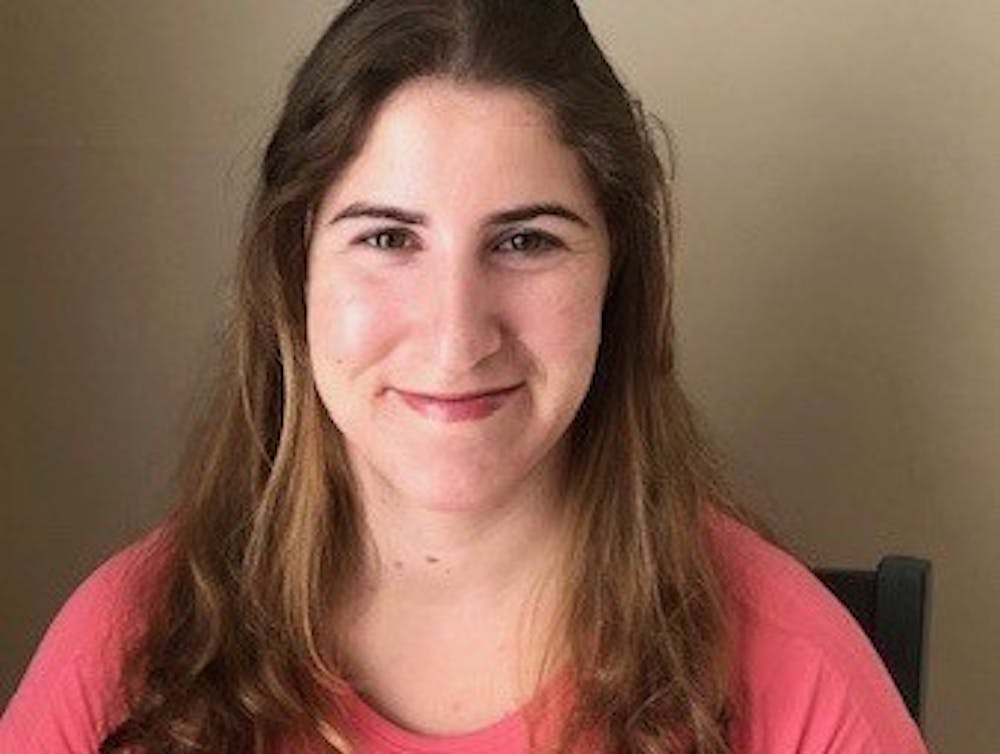When I graduated in 2012, I mistakenly thought that a summa cum laude degree would be the greatest benefit of an AU education. In actuality, the takeaway that mattered the most was the support of a faculty member who threw me a lifeline several years later.
Looking back, I was deeply unprepared for the challenges that followed college. My undergraduate experience had been lopsided because of the baggage that I brought to campus as an incoming freshman from San Diego and Bethesda.
I arrived uncomfortable with my femininity, struggling with anorexia nervosa and eager to escape a controlling therapist. My sessions with a new therapist four times a week took up a lot of my time. A sharp drop in weight forced me out of the AU Honors dorm after one semester.
Living at home in Bethesda and driving to school for classes, I held my pain inside and came to believe that my personal issues were separate from my academic identity. I hoped to find solace and relief by majoring in health promotion. My strong work ethic led to high grades.
That’s how I came to the attention of the program director, Dr. Anastasia Snelling, who became my advisor. She encouraged me to take graduate courses. I succeeded in the classroom, but had very little social interaction with other students. What hurt most of all was that I made no true friends.
Upon graduating, I persuaded myself and my parents that I could find my way forward by telling my story. I dreamed of becoming a celebrity by writing a memoir describing my struggle with anorexia, and then a novella about a failed relationship with a boy.
Actually seeing these projects through took a tremendous amount of discipline, but also left me entirely on my own. Without any support network to call on, I remained firmly in denial of how sick I was and firmly resistant to mental health professionals or meds.
My world crumbled. After completing my books, I suffered a life-threatening seizure in an emergency room. I then bounced from one eating disorder program to another, resisting treatment even though I complied with forced-feeding that violated my natural health values.
Dr. Snelling stood by me in the midst of all of this turmoil. When we got in touch during the summer of 2016, following my release from the Sheppard Pratt Hospital in Baltimore, she found a place for me in AU’s graduate health promotion management program.
Her belief in me was an amazing act of generosity, considering that I had sent her off-the-wall emails when I was sick. For the first time ever, I became part of a community of researchers, practitioners and other students who shared my values.
Her lifeline gave me a chance to launch my authentic self.
Still, I was unable to make the most of the opportunity that Dr. Snelling provided. My demons came back as soon as I went off Abilify, my prescribed antipsychotic medicine. I lost weight, always an early indicator that I was headed for trouble.
My professors expressed concern over my decreasing academic performance. I failed to complete an online course in nutrition education methods. Neither of the two internships that I tried over the summer of 2017 worked out. My efforts to come up with a topic for a master’s thesis fell short.
As I was unraveling, I refused to meet with Dr. Snelling about my weakening academics and had to take a medical leave of absence.
Slowly but surely, however, things turned around at a treatment center called Lifeskills in south Florida. Their highly structured but holistic approach to recovery suited me. I broke new ground by establishing a real rapport with a psychiatrist and two therapists.
I took, in stride, a diagnosis of chronic mental disorder. The same mind that got me A’s in school sometimes veered into delusions. But the psychiatrist said my disorder could be managed with the right mix of medications and support along with my determination. I believed him.
As I progressed, Dr. Snelling re-entered the picture by enabling me to re-enroll in the master’s program. With her backing, I finished my nutrition course and wrote an independent study paper based on interviews with yoga instructors in south Florida. If all goes well, I will receive my master’s degree in the spring of 2019.
At long last, I feel ready to move forward. I have learned to accept where I am now. My social skills are much improved. I am more comfortable in my own skin. I am interested in exploring a career that will allow me to help others by combining yoga instruction with writing and research.
None of this would have happened without the support of an advisor who stood by me through thick and thin. If there is one thing I have learned, it’s the value of an AU Eagle not having to fly alone.
Laura Yochelson is a graduate student in the health promotion program. She is an outside contributor. The opinions expressed by the author are hers alone, and do not necessarily reflect the views of The Eagle and its staff.
opinion@theeagleonline.com




